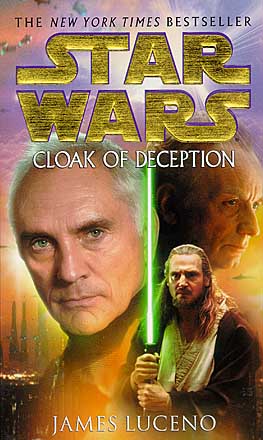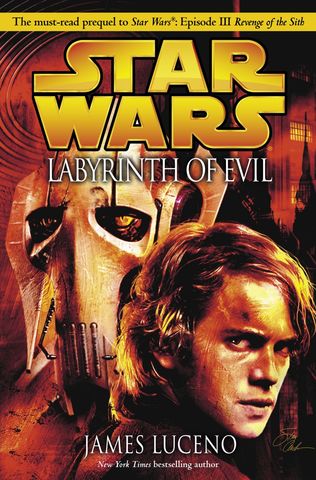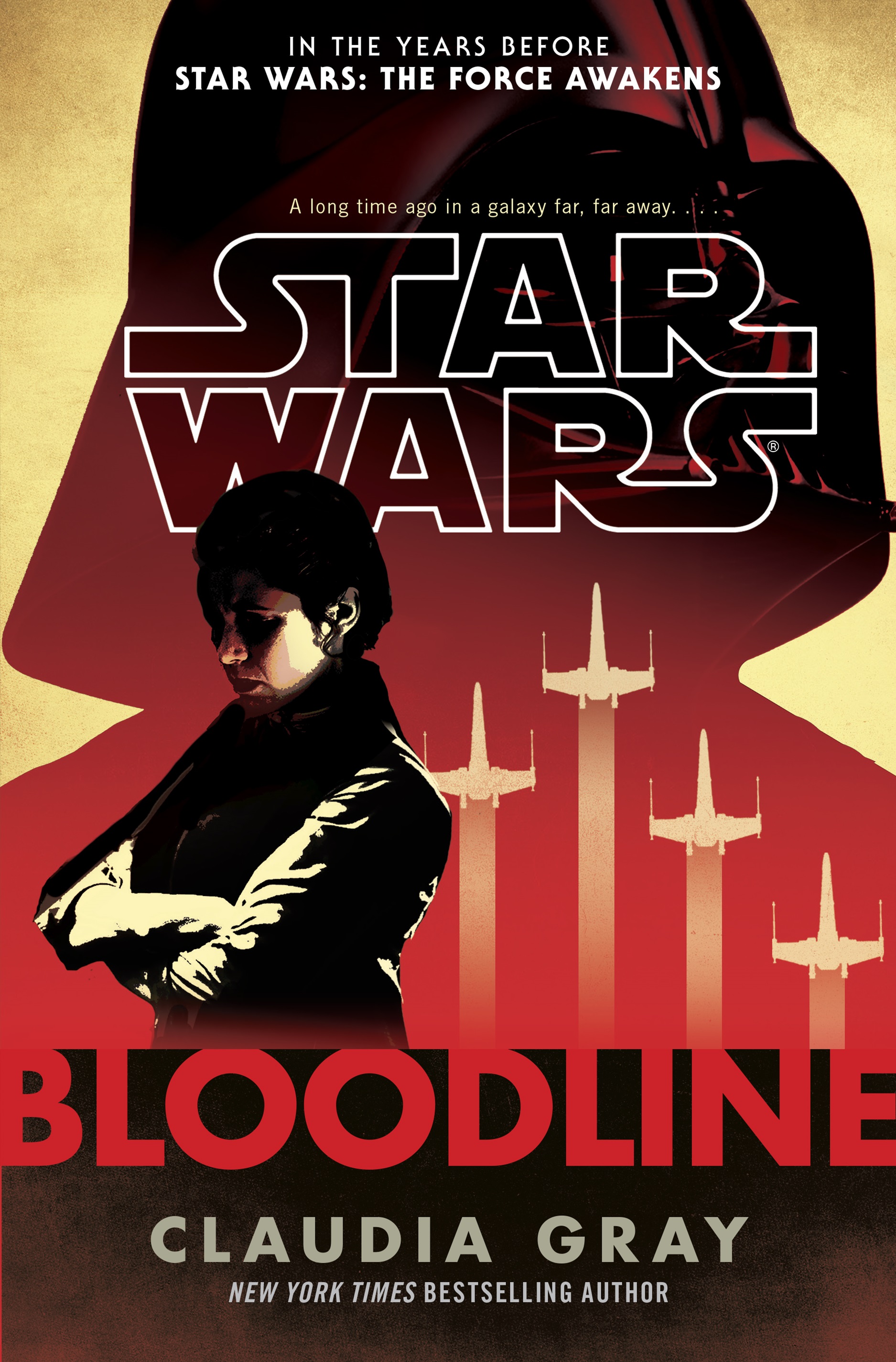 A “fix” book? What on earth is a fix book? Much as we may love it, over the years, Star Wars has acquired a deserved reputation for some quite off the wall plot concepts. Ideas like casually dropping the bomb that Vader is Luke’s father to the far more infamous taxation plot of The Phantom Menace. In some cases, a book comes out and addresses such plots head on. It considers how to either make a broken plot work or enhance an existing one that works adequately but could be improved. With the advent of the prequels, this became more noticeable but was not restricted to them. Is Bloodline one of these books? No, it isn’t. Why? Read on…
A “fix” book? What on earth is a fix book? Much as we may love it, over the years, Star Wars has acquired a deserved reputation for some quite off the wall plot concepts. Ideas like casually dropping the bomb that Vader is Luke’s father to the far more infamous taxation plot of The Phantom Menace. In some cases, a book comes out and addresses such plots head on. It considers how to either make a broken plot work or enhance an existing one that works adequately but could be improved. With the advent of the prequels, this became more noticeable but was not restricted to them. Is Bloodline one of these books? No, it isn’t. Why? Read on…
It was Cloak of Deception in 2001 that first showed what could be done to support the films. This took the much loathed foundation for the Republic Senate falling apart and sought to provide a logic that explained why the taxation of trade routes was so problematic. James Luceno also wove in pieces on the Jedi, on Darth Sidious and almost every other plot strand that the film had slung around with abandon. In the process, this prequel-to-a-prequel improved nearly everything.
Jump forward a year, to 2002 and the New Jedi Order volume of Destiny’s Way came out. It remains hard to know exactly how much of that series really was planned out and how much was winging it, the finale The Unifying Force suggests rather more improvisation than might want to be admitted. Now, I doubt that would make any difference but back then, you had to have a plan! Or claim to have one. Everyone seemed to get far more cynical about this stuff after Lost.
In Destiny’s Way, there was a clear sense of ‘time to fix this shit’:
- The New Republic could not possibly go on fighting the war like an idiot – so Admiral Ackbar returned to take charge and kick arse and he did.
- The New Republic could not possibly keep the suicidally self-interested leadership it had and survive – so it didn’t.
- The Yuuzhan Vong could no longer be the super juggernaut that blitzkrieg-ed their way through the galaxy, thus they were shown to have weaknesses.
It all combined to the Battle of Ebaq where the Galactic Alliance, including the Empire, tore the Vong a new one, again and again, so moving away from being annihilated by their enemy. Whatever anyone’s view of the book, few would disagree it made a whole lot of much needed changes.
 Jump forward to 2005 and something new comes along in Labyrinth of Evil. This book came out before Revenge of the Sith, but was clearly written with some knowledge of it. As such it’s the closest predecessor to what Bloodline is, but not entirely. Unlike the new book, this was more restricted in how much it could show. It includes General Grievous, who had made his debut in the Clone Wars cartoons and teases the possibility of Darth Sidious’ identity being uncovered – to which a certain skepticism would be merited. Nonetheless, Luceno works well within the restrictions he has. What does this proactively fix though? For me, it does a much better job of showing the Anakin/Obi-Wan relationship that a great deal of Revenge of the Sith revolves around; it’s noticeable that Sidious always wants Obi-Wan out of the picture, preferably permanently. In the film Christiansen could never really sell me Anakin as this good individual, but Luceno does. Without this and the other Clone Wars material that was released across 2002 to 2005, Revenge of the Sith would have had a far blunter edge to its tragedy.
Jump forward to 2005 and something new comes along in Labyrinth of Evil. This book came out before Revenge of the Sith, but was clearly written with some knowledge of it. As such it’s the closest predecessor to what Bloodline is, but not entirely. Unlike the new book, this was more restricted in how much it could show. It includes General Grievous, who had made his debut in the Clone Wars cartoons and teases the possibility of Darth Sidious’ identity being uncovered – to which a certain skepticism would be merited. Nonetheless, Luceno works well within the restrictions he has. What does this proactively fix though? For me, it does a much better job of showing the Anakin/Obi-Wan relationship that a great deal of Revenge of the Sith revolves around; it’s noticeable that Sidious always wants Obi-Wan out of the picture, preferably permanently. In the film Christiansen could never really sell me Anakin as this good individual, but Luceno does. Without this and the other Clone Wars material that was released across 2002 to 2005, Revenge of the Sith would have had a far blunter edge to its tragedy.
So then, how does Bloodline differ significantly enough from its august predecessors to not be deemed a ‘fix’ book?
Fact is, like or loathe them, the prequels were Lucas’s and he was going to do what he was going to do, come hell or high water. In the wake of that books like Cloak of Deception and Labyrinth of Evil did what they could to enhance the more clunky elements, but the amount of coordination and cooperation they got was limited. Bloodline departs from this significantly. It is the first real proof to the Story Group’s statement of all stories counting.
From all accounts, The Force Awakens covered the political aspect of the galaxy minimally. It is likely its sequel will not. Now, it could be proposed that the new film was done in the same way as the old and Bloodline is a really, really good patch job, done at speed and so close to the film that it merely looks coordinated. It’s a possibility, but Bloodline didn’t just link to the film, it linked to the Aftermath story, it picked up strands from the Star Wars Rebels quartet Servants of the Empire and it fused the pieces into a coherent whole. It didn’t answer all the questions, but it covered a good few of the major ones. Is all that mere chance? I think not.
 As Star Wars fans we’re not really used to this level of care being shown, never mind actually using different mediums to their advantage. Bloodline works brilliantly as a novel, the form allows us into the heads of the characters in a way no other could. Would Leia and Casterfo’s various exchanges have been as good without that peek into each of their perspectives? I’m quite certain Carrie Fisher and Tom Hiddleston could make those passages work on a stage or in film, but would it, even then, be as effective? I doubt it. Rebels is brilliant fun, but works best as animation. The various comics have spun tales that take advantage of their specific medium too.
As Star Wars fans we’re not really used to this level of care being shown, never mind actually using different mediums to their advantage. Bloodline works brilliantly as a novel, the form allows us into the heads of the characters in a way no other could. Would Leia and Casterfo’s various exchanges have been as good without that peek into each of their perspectives? I’m quite certain Carrie Fisher and Tom Hiddleston could make those passages work on a stage or in film, but would it, even then, be as effective? I doubt it. Rebels is brilliant fun, but works best as animation. The various comics have spun tales that take advantage of their specific medium too.
I have been quite skeptical as to how much of a plan there is, beyond ‘don’t do anything to limit the people making films’. In that respect I’d love to see a post-The Force Awakens story done before December 2017, which is when Episode VIII is released. It would be an excellent statement of confidence in what they are doing but it may be too much to ask. On the other hand, if more works of the quality of Bloodline is what they have in mind then maybe that does not matter as much.
It may be that the films are now the top dogs, capital ships as it were, but what Bloodline proves is that there’s going to be a whole array of very smart support craft to bolster them. That feels different, it looks different and it even suggests we may be entering an era of Star Wars where stuff does not need to be fixed because more care was taken in the first place!

The greatest example of a “Fix” book ever is “I, Jedi” by Stackpole.
Excellent review.
I think you’re forgetting that The Force Awakens didn’t really touch on the political state of the Galaxy. Also after like 33 years, they finally addressed Leia’s thoughts on her biological parents, especially Vader. At this rate, I doubt the movies will ever even mention it.
Well, to forget I’d have to have seen TFA! 😉
Even so, I’d say that TFA is known to have done so little on the politics is the reason Bloodline exists, so kind of hard to overlook.
Plus, in the immediate aftermath of TFA’s release, I did see the view that TFA was weakened by the lack of political info. Bloodline just comes in and fills those gaps, albeit not completely, but still does much to answer questions raised by TFA. Even to the point where it could be suspected TFA only covering politics minimally was deliberate because they knew they had Bloodline to deploy!
I like that you mention Tom Hiddleston as Casterfo (the head casting from Claudia Gray). Actually when I was reading the book I could imagine hearing Tom Hiddleston when reading Casterfo’s lines.